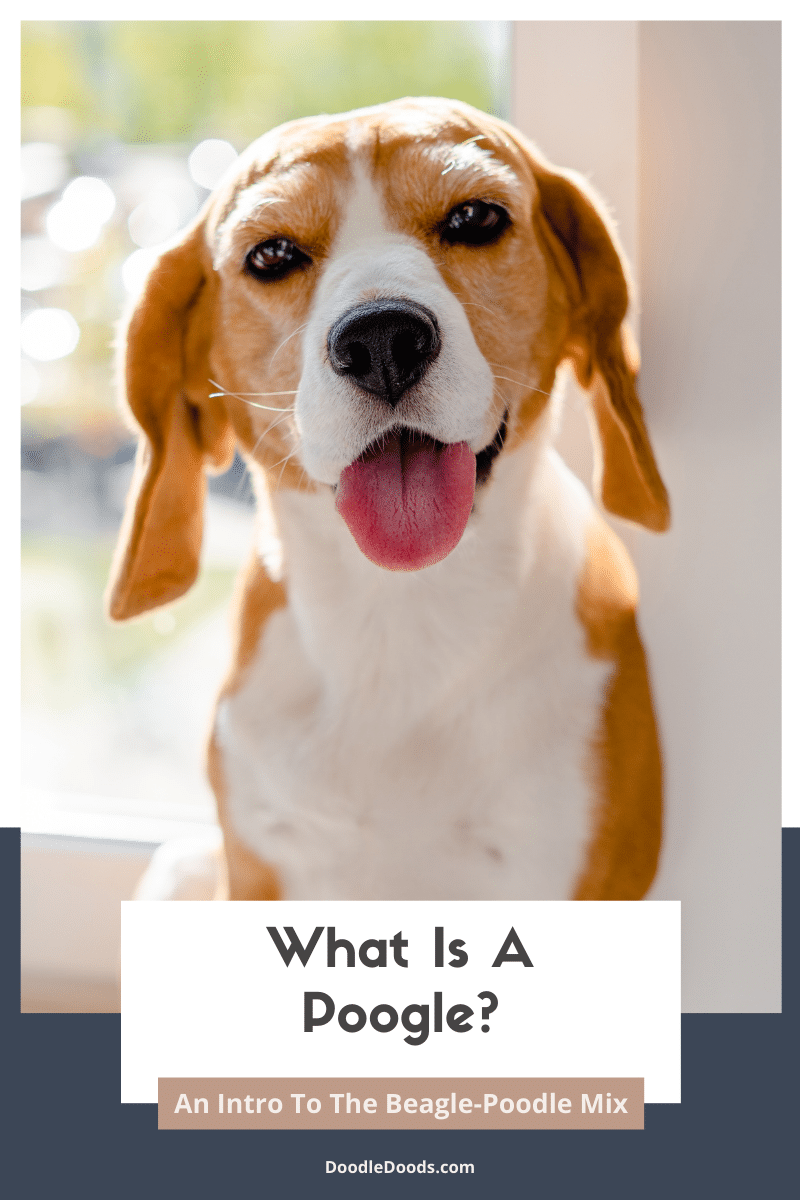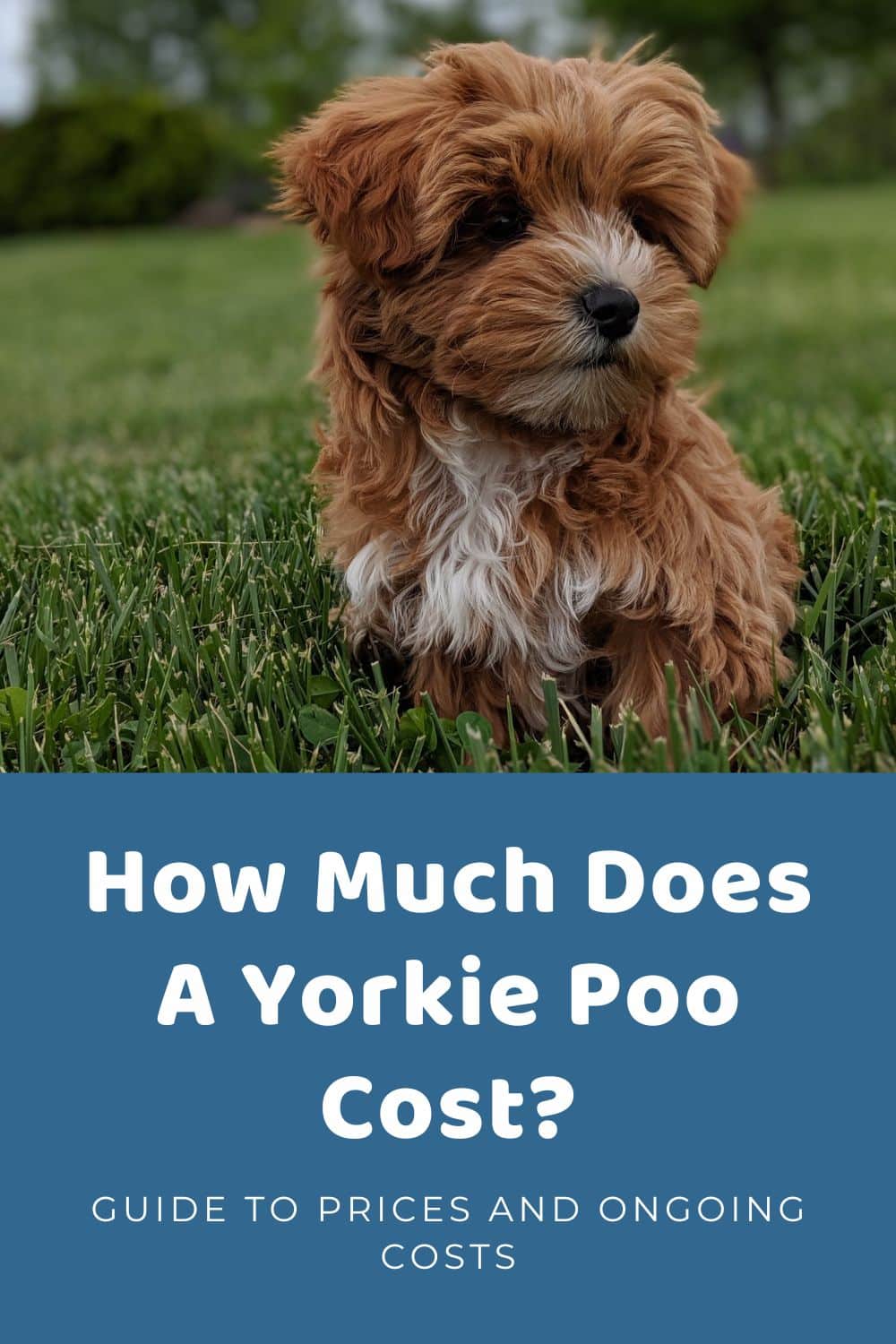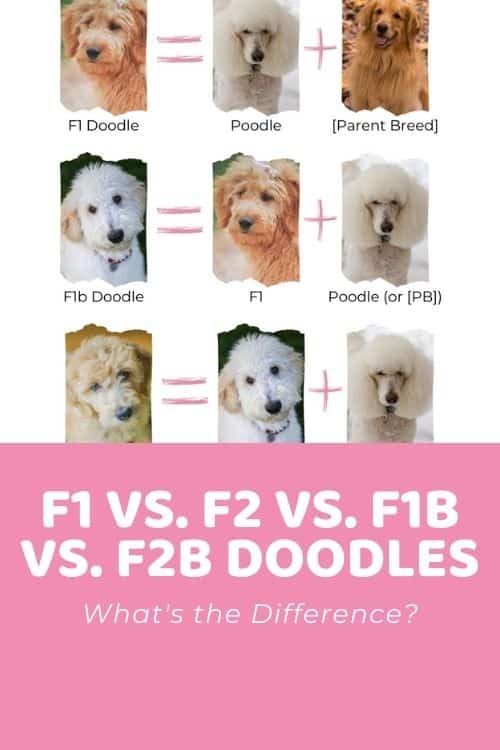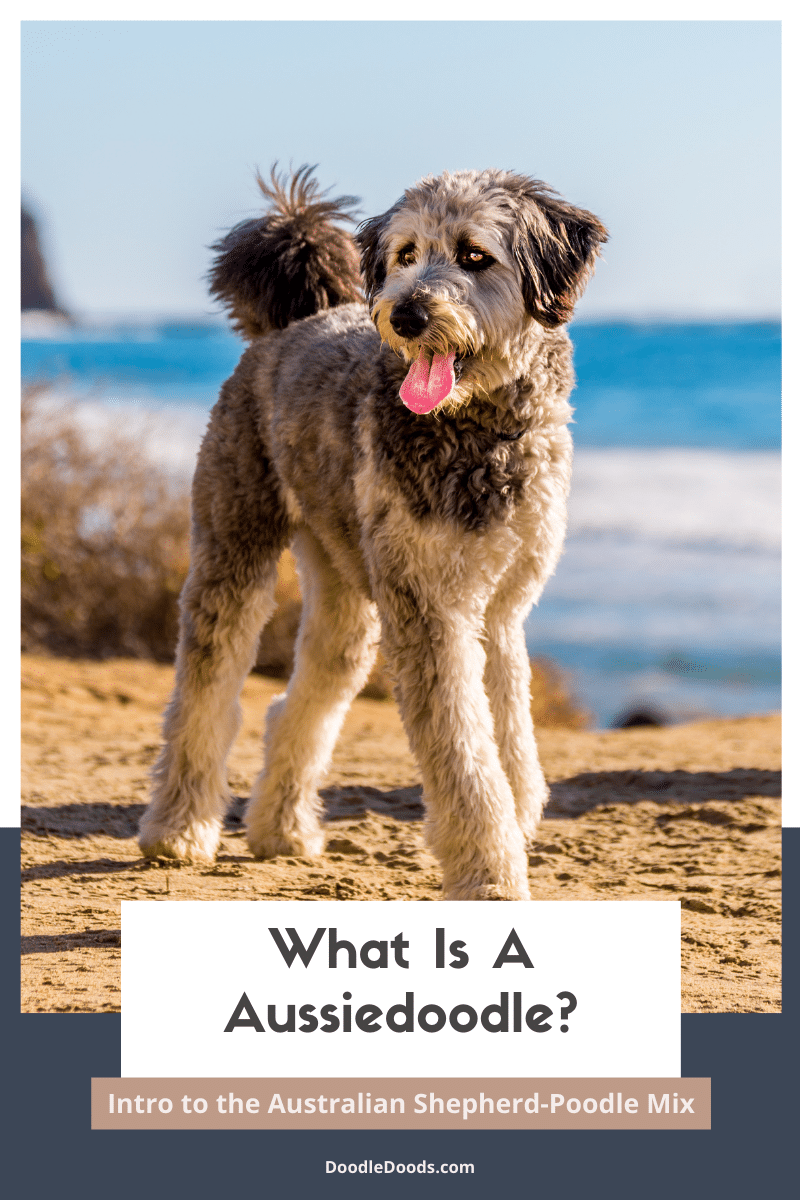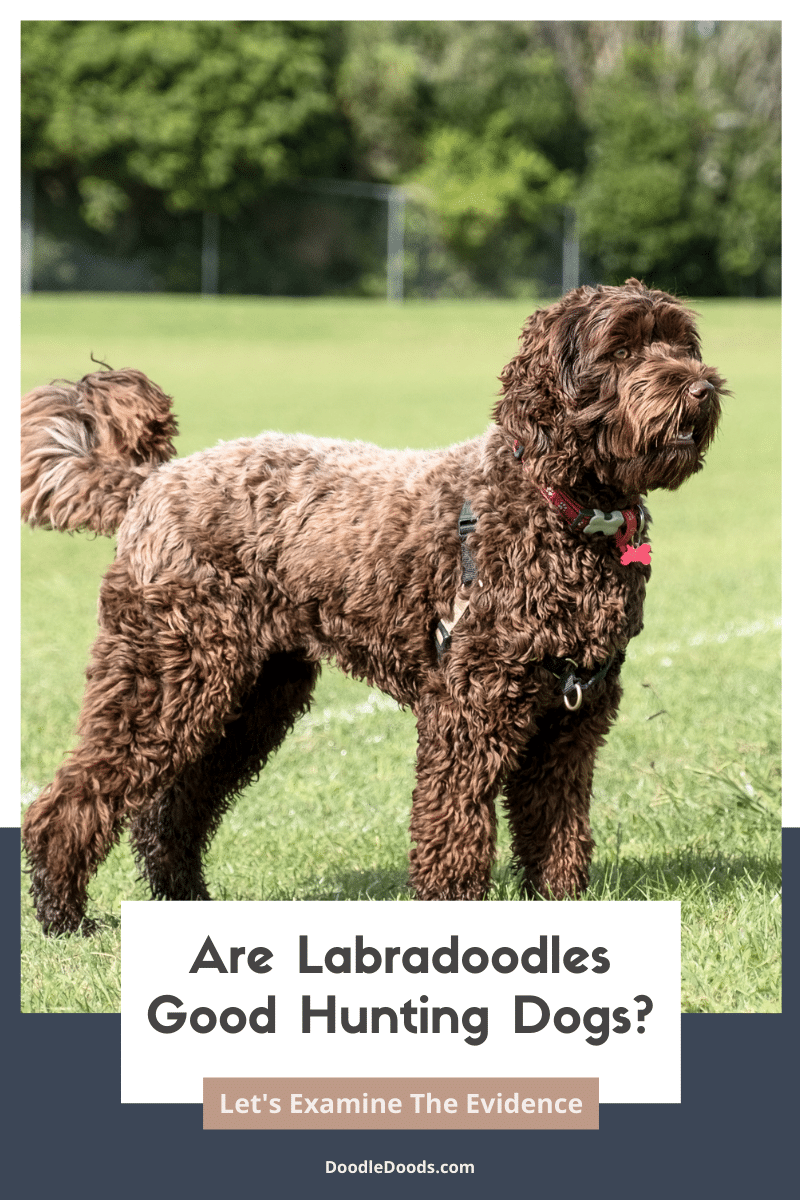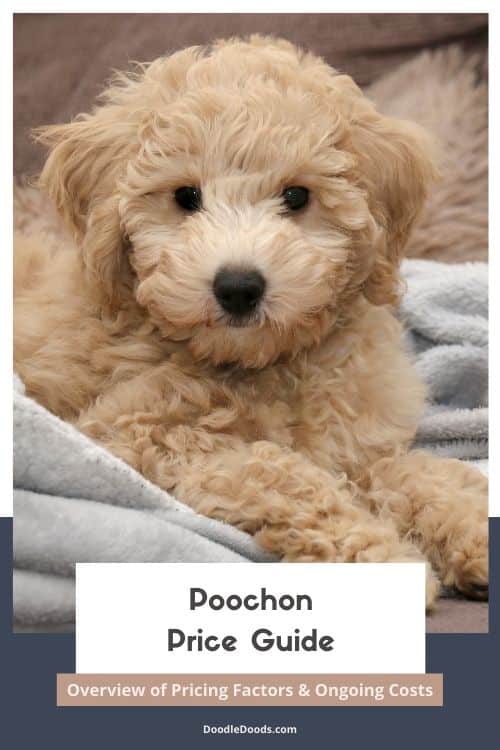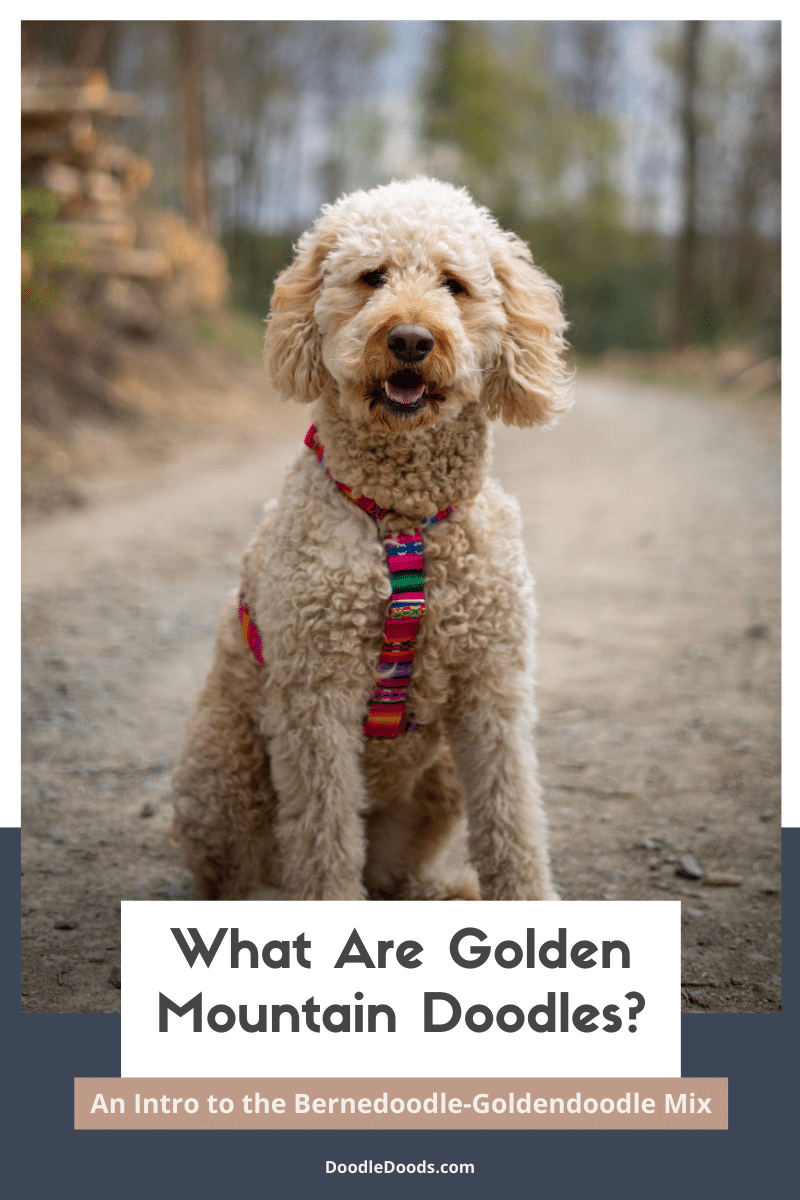One of the countless Doodle breeds is the Poogle, a.k.a the Beagle-Poodle mix. If you’re wondering what these pups look like, what’s their temperament like, and what daily care these Doods need, then you’ve come to the right place. In this guide, we’re going to dive deep into the Poogle crossbreed and learn everything there is to know about these precious little pups.
Table of Contents
- What Is A Poogle?
- Poogle Physical Appearance
- Poogle Pictures (Puppy & Adult)
- Poogle Size: How Big Will A Poogle Get?
- Poogle Variations & Generations
- Personality & Temperament
- Poogle Health: Do Poogles Have Health Problems?
- Poogle Lifespan: How Long Do Poogles Live?
- Exercise Requirements
- Training A Poogle
- Coat Care & Grooming
- Where Can You Get Poogle Puppies?
- Poogle: FAQ
What Is A Poogle?
The Poogle is a hybrid cross between the Beagle and Poodle breeds. Like many other Doodles, they’re also known by other names like Beaglepoo, Beagledoodle, or Poogle Hound to name a few.
Poogles are those happy-go-lucky pups that never seem to get annoyed or phased by anything. They’re insanely loving, super friendly, and highly intelligent pups that combine the best of both worlds, i.e. their Poodle and Beagle parents.
While Beagles were originally bred for hunting rabbits and hares, Poodles were bred for hunting ducks. Needless to say, both of these purebreds are very intelligent and athletic dogs to get their jobs done well, making their Poogle offspring just as talented in those areas.
The fun thing with Poodle mixes and other crossbreeds is that we can never know for sure what we might get. Some Poogles inherit more Poodle-like traits, whereas others lean more on the Beagle’s side of their lineage. And then there are those Poogles that have the perfect balance of their purebred parents. How amazing is that!
Poogle Physical Appearance
Poogles are small-sized dogs with a sturdy build. They have fluffy coats that can range from curly to wavy to straight and also vary in colors and patterns, depending on which parent they take more after. And as you’d expect, they also flaunt those cute floppy ears as we usually see on Doodles.
Poogle Colors
Poogles often have the signature Beagle coat that combines two or three colors. The most common ones include:
- Black, red, and white
- Blue, tan, and white
- Black and tan
- Black, tan, and white
- Brown, white, and tan
- Lemon and white
- Red and white
Plus, all the numerous other combinations that are possible when adding the Poodle into the mix. In fact, both Poodles and Beagles come in a variety of solid coat colors like black, brown, white, tan, blue, red, and cream. Or, they can also have different patterns that combine two or more colors. As a result, a Poogle pup can inherit any of these coat colors and combinations from their parents.
Coat, Shedding, & Hypoallergenic Level
Poogles usually have thick and fluffy coats that grow quite long. Depending on which side of their lineage they take more after, they can have either curly, wavy, or straight coats. The great thing about the Poogle’s coat is that it’s very low to non-shedding, making the Poogle an excellent pet for people with dog allergies.
Nonetheless, not all Poogles inherit the non-shedding coat that we see on Poodles. After all, the purebred Beagle has a shedding double coat. Therefore, some Poogles may also inherit a lightly shedding undercoat from their Beagle parents. Luckily, it usually doesn’t shed too much.
As a general rule of thumb, the curlier a Poogle’s coat, the more hypoallergenic it is. Curly-coated Poogles inherit their coat genetics mostly from the Poodle, which means that they have a single coat that’s super thick, textured, and curly. The downside of the curly coat is that it’s super high-maintenance and the most prone to matting.
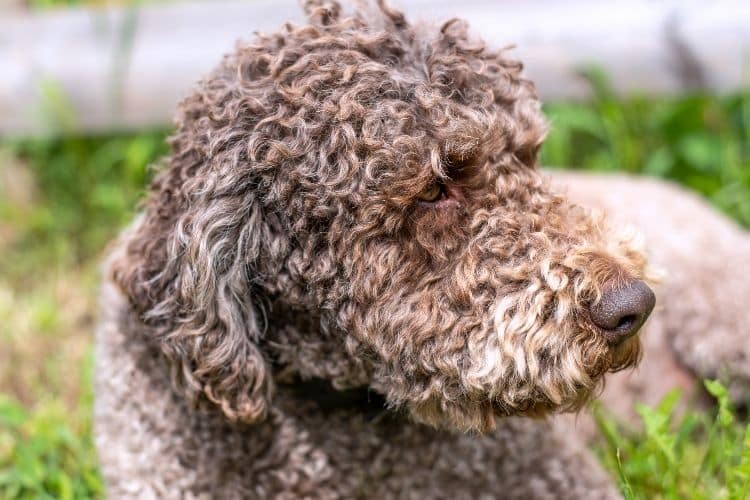
Poogles with wavy coats can also be very well tolerated by people with allergies, especially if they don’t inherit an undercoat. But that’s not necessarily always the case, as some wavy-coated Poogles may be double-coated. Regardless of that, wavy-coated pups are thought to be the easiest to groom, as they’re not as mat-prone and nor do they shed very much.
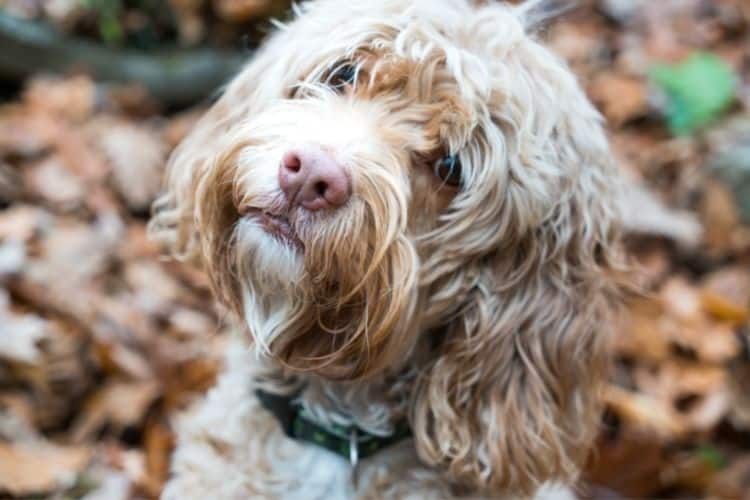
And lastly, straight-coated Poogles are generally double-coated, making them the least allergy-friendly of the bunch. If you’ve got a straight-coated Poogle, be sure to brush out their coat regularly to get rid of any loose dog hair that can start to tangle and lead to mats.
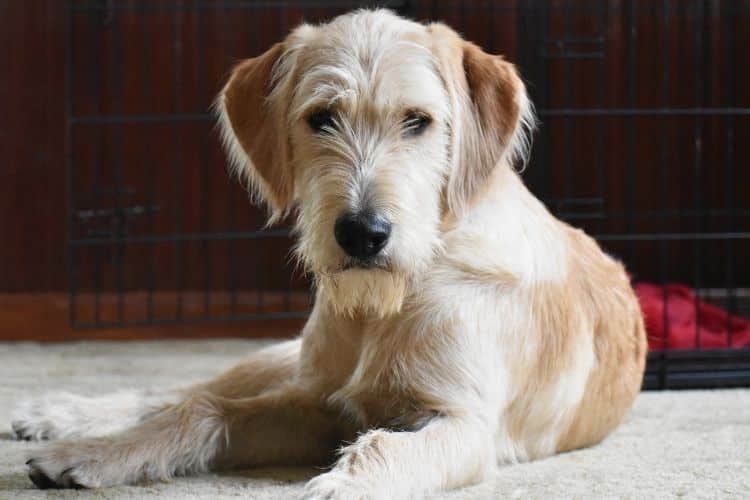
Poogle Pictures (Puppy & Adult)
Beagles and Poodles are without a doubt one of the cutest dog breeds out there. So, it’s only natural their Poogle offspring look every bit as adorable as their parents:
| Black and Tan Poogle | @suki.the.poogle |
| Tan and White Poogle | @raviolithepoogle |
Poogle Size: How Big Will A Poogle Get?
Poogles are small-sized, yet sturdy dogs with an average weight of 10 to 25 pounds. Their height can range between 10 and 15 inches measured from the shoulder. The size of a Poogle largely depends on the size of the Poodle used in the mix. Typically, the Beagle-Poodle mix uses either Miniature or Toy Poodles, resulting in quite compact Doods.
| Toy/Mini Poogle | Mini/Standard Poogle | |
| Weight | 10-15 pounds | 15-25 pounds |
| Height* | 10-12 inches | 13-15 inches |
| When Full-Grown? | 7.5-11 months | 11-13 months |
*A dog’s height is measured from its withers – the highest part of its shoulder blades.
Interestingly enough, both Poodles and Beagles come in multiple size categories. Poodles come in Standard, Miniature, and Toy sizes, whereas Beagles come in a larger and smaller size. Breeders would use similar-sized parents to achieve more consistency in their litters. So, we can usually expect a smaller Beagle and a Miniature Poodle to be used in the Beagle-Poodle mix, as they’re most similar in size. If you’re lucky, you might also come across smaller Toy Poogles that are bred with a Toy Poodle.
Due to the Poogle’s small stature, there usually isn’t much of a size difference between males and females. However, a Poogle’s generation and the size of its parents can very much affect their full-grown size.
Poogle Variations & Generations
Like other crossbreed dogs, Poogles can be bred in numerous ways. A breeder could mate a purebred Beagle with a Miniature Poodle, resulting in first-generation, or F1 Poogles. Or, they could venture into backcross and later generations, such as crossing an F1 Poogle back to a Toy Poodle. This would result in a litter of Poogle pups where the majority of the puppies’ genetic makeup would come from the Poodle. This in turn will affect their size, coat type, potential for shedding, and so on.
Here’s a full list of all the possible Poogle generations and how they vary:
| 1st Parent | 2nd Parent | % Beagle* | % Poodle* | |
| F1 Poogle (first-generation) | Beagle | Poodle | 50% | 50% |
| F1B Poogle (first-generation backcross) | F1 Poogle | Poodle | 25% | 75% |
| F1BB Poogle (first-generation backcross backcross) | F1B Poogle | Poodle | 12.5% | 87.5% |
| F2 Poogle (second-generation) | F1 Poogle | F1 Poogle | 50% | 50% |
| F2B Poogle (second-generation backcross) | F1 Poogle | F1B Poogle | 37.5% | 62.5% |
| F2B Poogle (alternate cross) | F2 Poogle | Poodle | 25% | 75% |
| F3 / Multigen Poogle | F1B Poogle or higher | F1B Poogle or higher | Varies | Varies |
*These are generic calculations only – genetics are rarely mathematically accurate.

Because the Beagle-Poodle mix is relatively new and still quite rare to come across, they’re most commonly bred as first-generation Doods. But as with any hybrid cross, once more breeders start specializing in Poogles, we can expect to see more variations of them available to adopt.
Personality & Temperament
Poogles are friendly, outgoing, active, intelligent, curious, and affectionate dogs that will quite literally light up your whole world. They’re generally excellent pets for households with children, other dogs, and even cats. They just love everyone!
On the other hand, it’s not uncommon for Poogles’ prey drive to kick in, especially around smaller animals like cats. So, make sure to properly socialize your Poogle. And, of course, don’t encourage this type of behavior and make sure your cat always has an escape route just in case…
Nonetheless, Poogles love spending time with their loved ones and they tend to form very strong bonds with their human, canine, and feline family members. With that being said, as Poogles crave attention and affection at all times, they also tend to suffer from separation anxiety when left alone for too long.
The Beagle-Poodle mix is also quite a vocal dog. In fact, the Beagle is known as one of the most vocal breeds, and the Poodle doesn’t fall too far behind, either. So, if you’re looking for a quieter companion, the Poogle might not be the best pet for you.
Poogle Health: Do Poogles Have Health Problems?
Much like purebred Beagles, Poogles are prone to obesity, which in turn can lead to a host of other health issues. Poogles are at risk of hip and elbow dysplasia, which are serious, yet common health concerns in Doodles. In fact, all of those joint problems can drastically intensify if a dog is excessively overweight. Poogles are also prone to eye diseases like progressive retinal atrophy (PRA), cherry eye, cataracts, and glaucoma. Health conditions like epilepsy, heart diseases, diabetes, thyroid conditions, dental problems, and hormonal illnesses are also some concerns to watch out for.
Nevertheless, Poogles are generally healthy dogs, often even considered healthier than their purebred parents thanks to hybrid vigor. Of course, that’s only the case when adopting your Poogle pup from a reputable breeder that only uses extensively health screened parent dogs in their breeding program to reduce the risk of those genetic conditions.
Additionally, it’s not uncommon for Poogles to suffer from less serious health conditions, such as allergies, sensitivities, and ear infections. Ear infections are very common in Beagles, Poodles, and Poodle mixes, as they all have floppy ears – the perfect breeding ground for bad bacteria that’s causing those painful ear infections. Proper ear hygiene routine is absolutely vital to prevent ear infections.
Allergies and sensitivities are also common in Poogles, often manifesting either as skin irritations, excessive hair loss, or digestive issues. If you’re suspecting an allergy, you might want to double check whether their usual kibble contains triggering ingredients. Or, perhaps their dog shampoo and conditioner should be switched to hypoallergenic formulas instead.
Poogle Lifespan: How Long Do Poogles Live?
The average Poogle life expectancy ranges between 12 and 18 years. Although their genetics set them up for success, it doesn’t minimize the importance of a healthy environment in your dog’s life. To prevent obesity and the health issues stemming from this, you should keep a close eye on your Poogle’s food intake. And yes, treats count towards their daily calorie allowance, too! It’s equally important to feed your pup a high-quality diet that’s nutritionally balanced and suitable for their life stage.
For a healthy, happy, and fulfilled life, be sure to exercise your Poogle daily. And, don’t forget to stay on top of your Poogle’s yearly vet check-ups to catch any illnesses early on. This is also a great time to get your pup’s booster vaccines administered when necessary.
Exercise Requirements
Poogles are very active dogs, so it’s no surprise that they need a hefty 1 to 2 hours of exercise each day. Larger Mini Poogles will do better on 2 hours of exercise per day, whereas smaller Toy Poogles tend to have less stamina. Also, be mindful of your young Poogle puppy, as they don’t have nearly as much stamina just yet.
Daily walkies are absolutely essential for these pups, but they may also enjoy light jogging and swimming. And let’s not forget, those playful pooches also need to get their daily dose of fun by playing fetch, tug-of-war, or any other fun game with you.
In addition to physical exercise, you should also provide plenty of mental stimulation for your Poogle to prevent destructive behaviors, stress, and anxiety. Poogles are highly intelligent dogs, which means that they need daily enrichment that allows them to concentrate and solve problems. Chew toys, puzzle toys, interactive games, and daily training sessions are all great ways to mentally stimulate your pooch.
Training A Poogle
Poogles are very intelligent, eager to please, and therefore easy to train, making them excellent pets even for first-time dog owners. Just be sure to stay consistent and patient, as they can get a bit too bouncy and energetic, especially in puppyhood.
To help those good behaviors and habits stick for good, you should start training your Poogle from the moment you bring them home. So, start with potty training, obedience training, and crate training as soon as possible. This will make things that much easier later on. In addition to that, don’t forget to socialize your pup safely with people outside the household, as well as other dogs and cats. Again, this helps build your puppy’s confidence, but also teaches them how to properly interact with others around them.
Setting a daily schedule for your pup is a great way for them to learn what happens at which time during the day. It’s also a great confidence-boosting trick so that they have an easier time adjusting to their new home and family.
When training a Poogle, only use positive reinforcement and reward your pup with plenty of praise and tasty treats for behaving well. Needless to say, there’s no place in negative reinforcement or punishment in dog training. Accidents happen, it’s totally normal!
Online Puppy School by Baxter & Bella
To make those training sessions easier for both you and your Dood, we recommend you enroll your pup to the Online Puppy School by Baxter & Bella. As the name hints, this program is completely online and contains countless resources on all things related to dog training. Whether you need help with potty training or basic manners, or perhaps some extra guidance on how to tackle certain behavioral issues, Baxter & Bella has got you covered.
What sets this program apart from others is that you can work on each topic as you wish and at your own pace. It’ll also teach you crucial skills on how to successfully raise your pup into a well-rounded and well-behaved adult, further strengthening the bond between you and your furbaby. Oh, and, all of this comes at a very reasonable, one-time fee!
Coat Care & Grooming
The great thing about Poogles is that they don’t shed much and therefore make very allergy-friendly pets. The not-so-great thing about them is that they’re quite high-maintenance, requiring you to keep up with their daily, weekly, and monthly grooming activities.
Since matting is a very common concern for Poogles, you should brush your pooch daily with a slicker or pin brush, such as the ones we recommend for Poogles here. As Poogles have different coat types, they also require slightly different approaches, too. Curly-coated Poogles are the most prone to matting and will also need to be brushed and groomed the most often. If your Poogle has a wavy or straight coat type, they might not be as tangle-prone, but they’ll need help deshedding the coat from dead fur.
You should also have your Poogle’s hair trimmed every few months. Either take your pup to a professional groomer or learn how to do it yourself with our How To Groom A Doodle At Home online course. This is also a great time to bathe your Poogle with a dog shampoo and conditioner. Not only will this prevent your pup from getting smelly, it’s also going to minimize allergens.
To prevent ear infections, you should clean your pup’s ears at least once a week with a special dog ear cleaner. Also, be sure to always thoroughly dry your Poogle’s ears after bathing and swimming to keep the bad bacteria at bay.
Weekly nail trimming is necessary to prevent overgrowth, ingrown nails, and pain when walking. Furthermore, as Poogles are prone to dental problems, we recommend you brush your dog’s teeth with a dog toothpaste and dog toothbrush at least a couple of times a week.
Where Can You Get Poogle Puppies?
If you’re seriously considering adopting a Poogle, you’d probably like to know – how much does a Poogle cost to adopt? In the US, the average Poogle price can range between $1,500 and $4,000, give or take. The exact price will depend on your geographical location, the breeder’s reputation and experience, or even what size and color of Poogle you’re wanting to adopt.
As the Poogle crossbreed is still quite new and rare, it can be tricky to find reputable Poogle breeders near you. For this reason, we created our Doodle Breeder Directory where we list reputable Poogle breeders all across the US and other countries.
Although we carefully vet our breeders, we do recommend you educate yourself beforehand on how to choose a responsible Doodle breeder as well as how to spot Doodle scammers and puppy mills.
Poogle: FAQ
Poogles make wonderful pets thanks to their lively and happy-go-lucky personality. They’re loving and smart dogs, and they also make excellent companions for families with children and other pets.
Indeed, Poogles bark, sometimes more than you’d wish for. After all, both Beagles and Poodles are notoriously vocal dogs. To prevent things from getting out of hand, be sure to start socializing, training, and desensitizing your Poogle pup from a young age. Also, be sure to provide plenty of exercise and mental stimulation for your pooch on a daily basis to prevent excessive barking.
A Poogle is best for anyone who has the time and energy to exercise with their pup, train them, and spoil them with plenty of affection and adoration. They thrive best in households where at least one family member gets to spend time with them during the day as well, since they are prone to separation anxiety. Moreover, thanks to their small size, Poogles can very comfortably also live in apartments, especially those tiny Toy Poogles.
Learn How to Stop Shavedowns For Good & Keep Matting At Bay!

Discover the PROPER Doodle coat care routine that gets your pup to cooperate…helps you nip tangles in the bud…and gets groomers to do exactly what you want.
Plus, get $520 worth of Bonus Materials for FREE, including:- Doodle Parenthood Community and Support Group ($190 value)
- Custom Doodle Coat Care Plan Lifetime Access ($75 value)
- Easy to Use Doodle Grooming Tracker ($20 value)
- And MORE!

